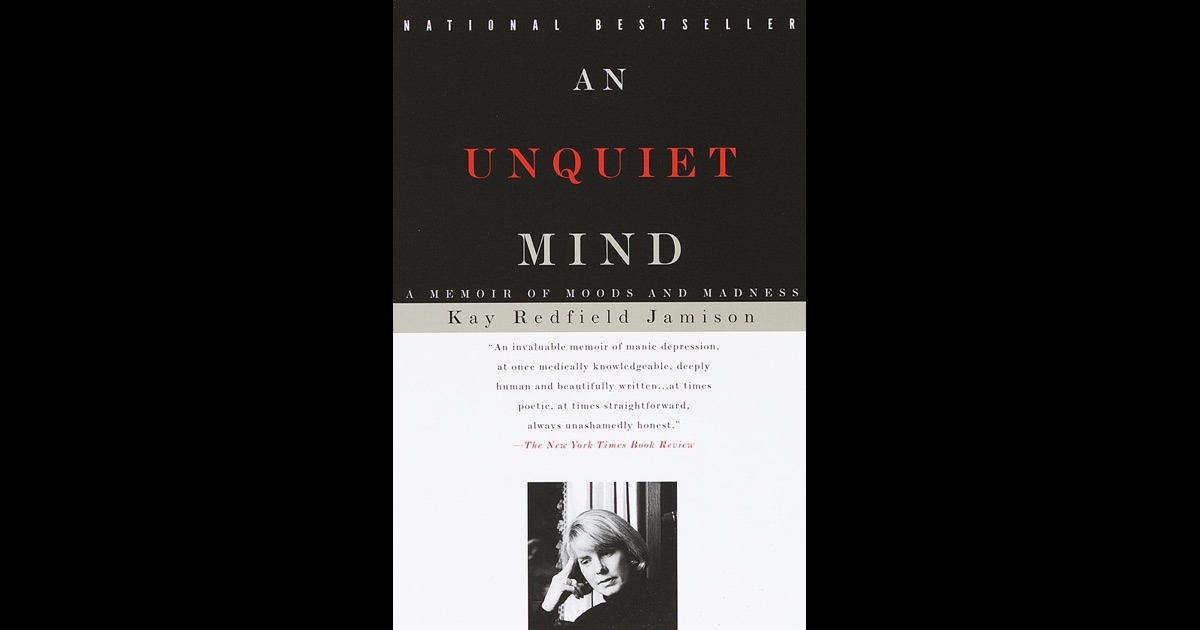
In the 16 years since An Unquiet Mind was first published, no greater book about manic depression – or bipolar disorder – has appeared.I was reading some reviews of the book written by people that disliked this. The writing is clear and beautiful, the descriptions accurate, the interior world she evokes is furiously alive. She writes of the sensation of being "a zebra among the horses", and the struggles of psychiatry to classify, research and treat. She writes about relationships and lovers and how "sex became too intense for pleasure and during it I would feel my mind encased by black lines of light that were terrifying to me". Jamison writes about childhood, family and work.

That is not just a statement of the obvious but an indispensable clinical fact.

"People go mad in idiosyncratic ways," one chapter begins. The events of Jamison's life flow into her understanding of the illness, just as the illness has shaped her life. Her arguments flow from a view of major mental illnesses as the downstream biological effects of genetic disorders, and she perhaps underplays environmental factors. Jamison's condition has been about as severe as is possible in someone still capable of holding down a senior medical position (currently professor of psychiatry at John Hopkins University in Baltimore). A psychiatrist who has suffered from the illness for most of her life, she prefers the term manic depression because it is both more expressive of her experience and, ultimately, more clinically accurate. She was not afraid of admitting that she herself suffered episodes of "madness" – nor did she feel the need to be de-stigmatised by politically correct terminology. Jamison, writing in the mid-90s, says she felt personally affronted by the term "bipolar". Is depression really "unipolar" while manic depression is "bipolar"? Such classifications presuppose, she writes, "a distinction between depression and manic-depressive illness – both clinically and etiologically – that is not always clear, or supported by science". In fact, argues Kay Redfield Jamison in An Unquiet Mind, the newer name may be the less precise.

T he cultural and medical shift that changed the meaningfully descriptive term "manic depression" into the quasi-mechanistic "bipolar disorder" did nothing to make our understanding of mental illness more precise.


 0 kommentar(er)
0 kommentar(er)
